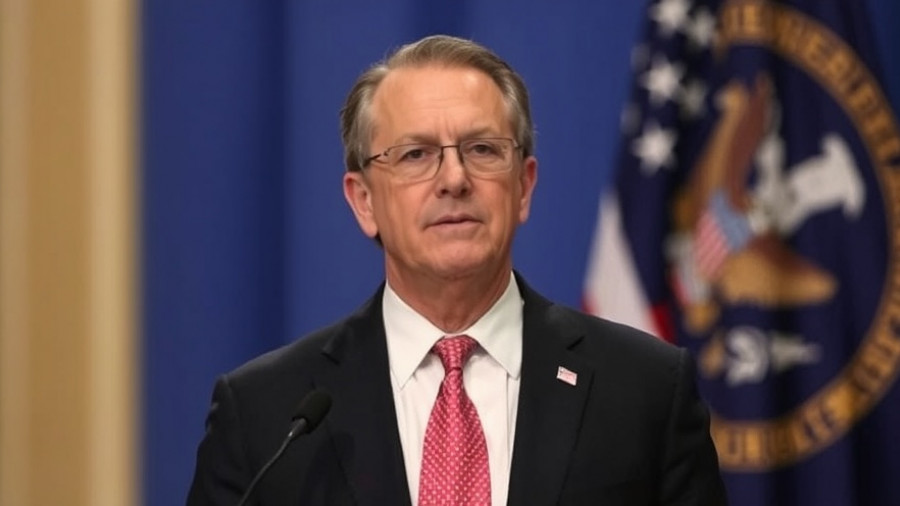
The Shift in Chemical Safety Leadership at the EPA
With the U.S. Senate poised to confirm Douglas Troutman as the new leader of the Environmental Protection Agency's (EPA) Office of Chemical Safety and Pollution Prevention, American consumers are faced with growing concerns. If ratified, Troutman would join three other former chemical industry lobbyists already in key positions within this office, raising alarms among environmental advocates and public health experts alike.
What This Means for Public Health
Advocates warn that Troutman's appointment could signify a shift away from stringent regulation of toxic substances at a time when public health is more critical than ever. Troutman’s tenure as chief lobbyist for the American Cleaning Institute has already shown a reliance on legislation that many claim favors industry over consumer safety. As noted by Scott Faber of the Environmental Working Group, “The lunatics are running the asylum,” signaling his apprehension about industry interests overtaking public safety matters.
The Rise of Industry Influence
Troutman is not an isolated case; he is part of a broader strategy where regulatory offices become hubs of industry connections. Having previously worked on legislation for changes in the Toxic Substances Control Act, Troutman has been criticized for allowing loopholes that manufacturers exploit, undermining safety protocols that were intended to protect consumers and workers.
Historical Context: Lessons from the Past
This isn’t the first time the EPA has come under scrutiny for favoring industry interests. The rollback of many critical regulations under the previous Trump administration has shown a disturbing trend of prioritizing corporate profits over public health. For instance, legislative attempts to repeal the Cleaning Product Right to Know Act—a law that enhances chemical transparency—have brought forth questions about the true interests of these regulatory leaders.
Future Implications and Community Response
If confirmed, Troutman's leadership could lead to a further decline in regulation, particularly concerning pollutants like PFAS, known as 'forever chemicals' due to their resilience in the environment. Given that hundreds of state laws have recently emerged to counter toxic chemicals, advocates like Faber argue that state-level regulations have become the last line of defense in protecting American families from harmful substances.
What You Can Do as a Consumer
For homebuyers, sellers, and investors in areas like Dumfries, understanding the implications of these regulatory changes is crucial. Being proactive means advocating for local regulations that safeguard public health and pushing for transparency in consumer products—especially cleaning supplies that may harbor unknown toxic substances.
Your Role in the Debate
Consumers can influence the conversation by demanding clearer labeling and information on the products they purchase. Engage with community discussions and reach out to local representatives to express concerns about the potential effects an industry lobbyist in such a prominent EPA role could have on public health. Your voice matters in ensuring that safety does not take a backseat to lobbying interests.
Connect with Fellow Advocates
Communities across the country are beginning to realize that informed consumers can drive change. Consider joining local environmental groups to stay informed about chemical regulations and advocate for safer practices in your area. Together, we can make a difference in the oversight of our health and environment.
 Add Row
Add Row  Add
Add 





Write A Comment